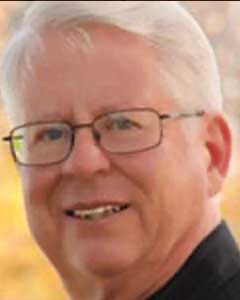 I’m excited about a new ministry prospect that is becoming available to the citizens of my city. We Christians have an opportunity to work with and serve many who once existed outside our conventional vision for mission.
I’m excited about a new ministry prospect that is becoming available to the citizens of my city. We Christians have an opportunity to work with and serve many who once existed outside our conventional vision for mission.
This new ministry is called the Calgary Alliance for the Common Good (CACG), and my congregation has been a founding and supportive member for more than two years.
Similar organizations to the CACG have formed in Vancouver and Edmonton, and we hope the idea, which first surfaced in the United States, will soon catch on in other parts of Canada.
The objectives of the CACG include the creation of a network of diverse religious, non-profit, labour, ethnic and service groups that seek meaningful relationships with each other and want to reach out to the community.
Members of the CACG cultivate leaders who promote healthy civic life and address key justice issues facing our city. They want to harness people-power to transform Calgary by addressing the systems, policies and underlying causes of, for example, poverty and injustice.
Factors making this ministry unique include joint efforts by numerous denominations (Anglican, United, Lutheran, Roman Catholic, Unitarian, Moravian), several Jewish communities, labour unions, social service organizations and even a progressive social justice professor from a local evangelical university.
Another unique feature is that we do not consider various levels of government (civic and provincial) as adversaries, but as allies in the process of implementing legislation that supports the vulnerable and oppressed.
What this means for my congregation is, for example, a focus on the particular needs of seniors, as well as improved relations with a local Indigenous community, the Stoney First Nation.
Face-to-face encounters and in-depth communication are important first steps in the building of just relations. Listening events engage those most affected by injustice in teaching and leadership roles. We must constantly be reminded of who teaches and who learns. In the past, privileged persons with good hearts have made ill-suited decisions for the underprivileged. To be effective we must change.
During the past two years, my congregation has not only contributed to the CACG, but it has also benefited from the experience of many others because of it. The reach of our connections is much greater and more effective than was possible had we remained confined to our own particular denominations or faith traditions.
In the next year, we will be adding mental health/addictions, social isolation and environmental concerns to our program research efforts. We plan to expand upon current attempts to improve the quality of life for our seniors and to support particular recommendations of the Canadian Truth and Reconciliation Commission’s report.
Mistakes will be made, and we may have to “go back to the drawing board” with some of our projects. But there is positive energy in many of our gatherings and events. As we gain experience, we want to expand our impact and grow ever more effective in our vision of serving “the common good.”





